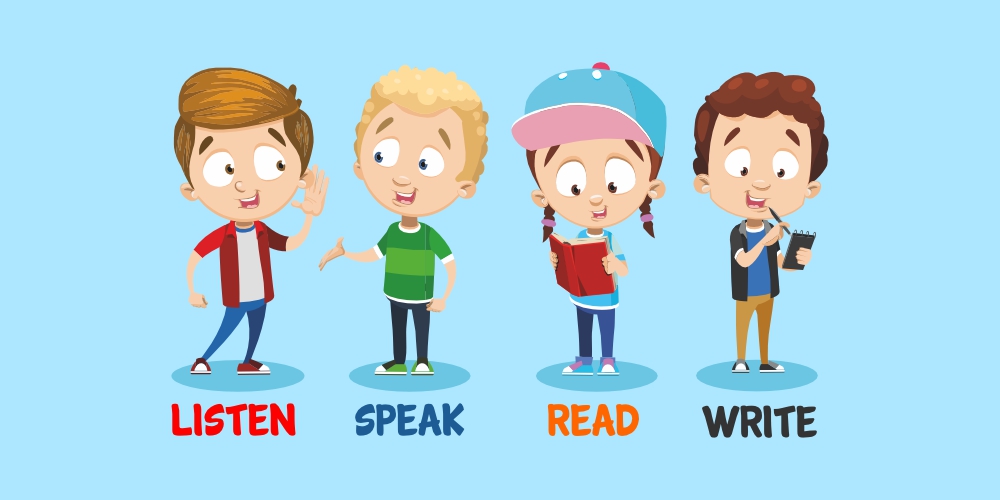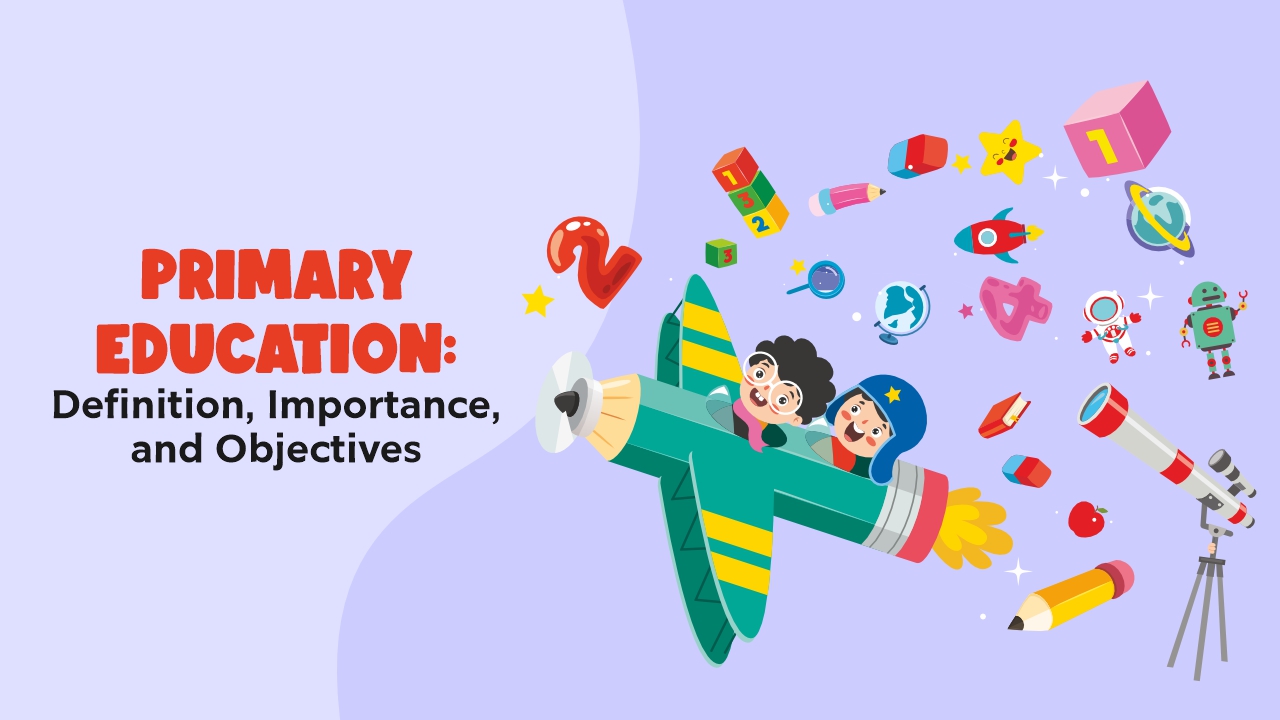If your child has completed kindergarten or is about to, then it is time to plan his/her primary education. This first stage of compulsory education acts as a transitional phase between pre-primary and secondary education.
So, if your little learner is nearing the completion of his/her pre-primary education, keep reading this blog. You will get a clear idea of primary education meaning, importance, objectives and more.
Primary Education – Definition
Primary education is like the bedrock of development for a child. In India, it is applicable for kids between 6 to 14 years of age. It has two parts – primary (Class I to V) and upper primary (Class VI to VIII).
In primary education, children learn the basic reading, writing and arithmetic skills which act as a foundation for their future academic careers. Also, this part of their educational journey promotes critical thinking, development of their own learning style, and character development.
Importance of Primary Education
Primary education plays a pivotal role in the education of our children. It teaches students the following:
●Reading and Writing Skills

One of the most important skills which children learn in primary school is how to read and write. Teachers usually start by helping them identify and pronounce alphabets and numbers. Then, they teach kids how to write them down on paper using a pencil.
Learning to read and write forms the base of a child’s education. Without mustering these skills, a child cannot progress to the next stage of education.
●Social and Communication Skills
In primary school, kids get to meet several other children of their age. This encourages them to interact freely, which can help them make new friends and improve their communication skills.
Moreover, they get to participate in several sports and group activities. Kids learn to coordinate, share and play with one another, thus inculcating social skills within them.
●Moral Development

Moral development forms an important part of primary education. It teaches children how to respect others, know the difference between right and wrong and stand up against injustice.
Furthermore, it enables them to build a strong character, boost confidence and choose the right path in life.
Objectives of Primary Education
The objectives of primary education are as follows:
●Encouraging Learning and Independence
In primary school, children get access to an environment which encourages learning. They get to learn various subjects like Mathematics, Social Studies, Science, etc. This piques their interest and helps them choose a future course of study.
Moreover, children also get to take part in activities which encourage them to use their intellect for solving problems. For example, playing games like Pictionary, Find the Object or Image, etc. can give children an opportunity to solve simple problems. Such tasks boost their confidence and help them become self-dependent.
●Promoting Literacy
A key objective of primary education is to promote literacy among children. They get to learn a first language (usually English) and a second language (usually their mother tongue). These languages are taught to them up to a certain degree of proficiency, which allows them to easily communicate via speech and writing, to express their thoughts.
●Developing Good Habits
“A habit cannot be tossed out the window”. Thus, primary education makes students adopt them while they are still young. They include respecting the national flag and emblem, showing dignity towards manual labour, opposing superstition, discrimination, communalism, etc.
In addition, they are taught cleanliness and the importance of maintaining proper hygiene and sanitation.
●Teaching Aesthetics and a Cooperative Spirit
Primary education also instils a sense of aestheticism in students. This encourages young ones to recognise what is good and beautiful and makes him/her willing to take care of it.
Furthermore, primary school is a place where your kid will learn how to behave and cooperate with other people. It is an essential skill which every child needs to learn, in order to be successful in any field of human activity.
Apart from this, a good primary curriculum encourages students to adopt a hobby. It is also an excellent way to stimulate the mind and body, along with building self confidence.
Narayana e-CHAMPS– A World of Fun and Learning for Classes I to V
When it comes to choosing the best primary school for your child’s education, look no further than Narayana e-CHAMPS, the primary programme of Narayana Group of Schools. Since our inception, we have been dedicated to nurture high-order thinking skills for the overall development of children aged between 6 to 12.
With an aim to make all our learners smart citizens of tomorrow, our pedagogy consists of an activity oriented approach, along with e-learning modules which promotes a fun and interactive learning experience. Unique and innovative features like these make e-CHAMPS the top primary school for your kids.
To stay updated about all the important information from the Narayana Educational Institutions, Join our Telegram channel: https://t.me/narayanaeducationalinstitutions

Namasthe management…..
I have read all the instructions…..and it’s a very useful information….. thankyou for that…..nd will follow these…..to better my kid….. thankyou
Usefull information
Narayana school e-CHAMPS has a VISiON to promote All Round Development of children.The institution imparts education through Activity based Learning which encourages students to develop their innate potentials.Above all it also involves participation n suggestions from parents .
Hello narayana team. Good morning!
It would be better if u include yoga , karate and games to the daily or weekly schedule. Thank you.